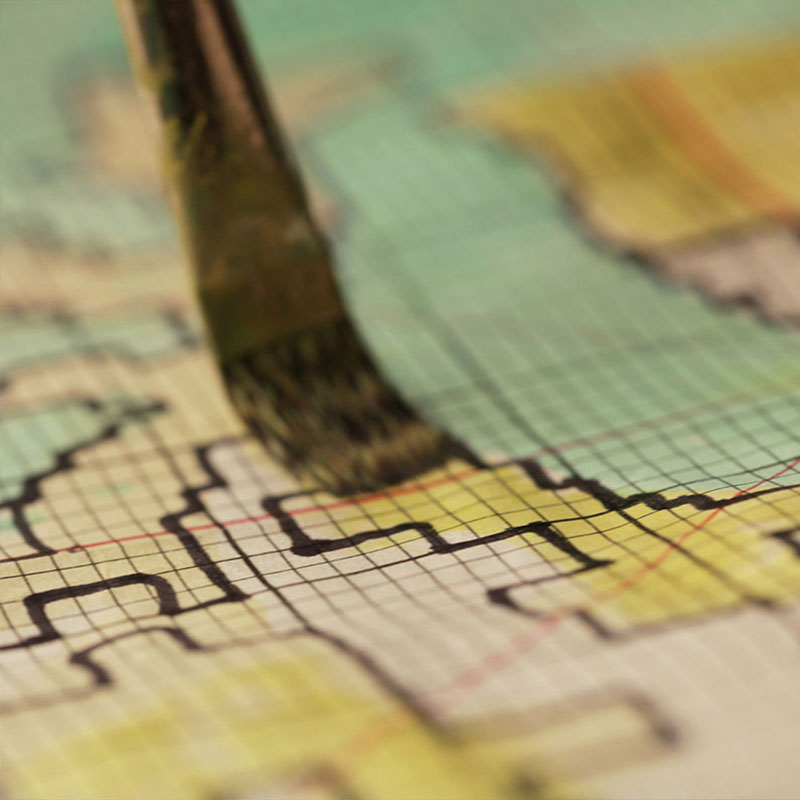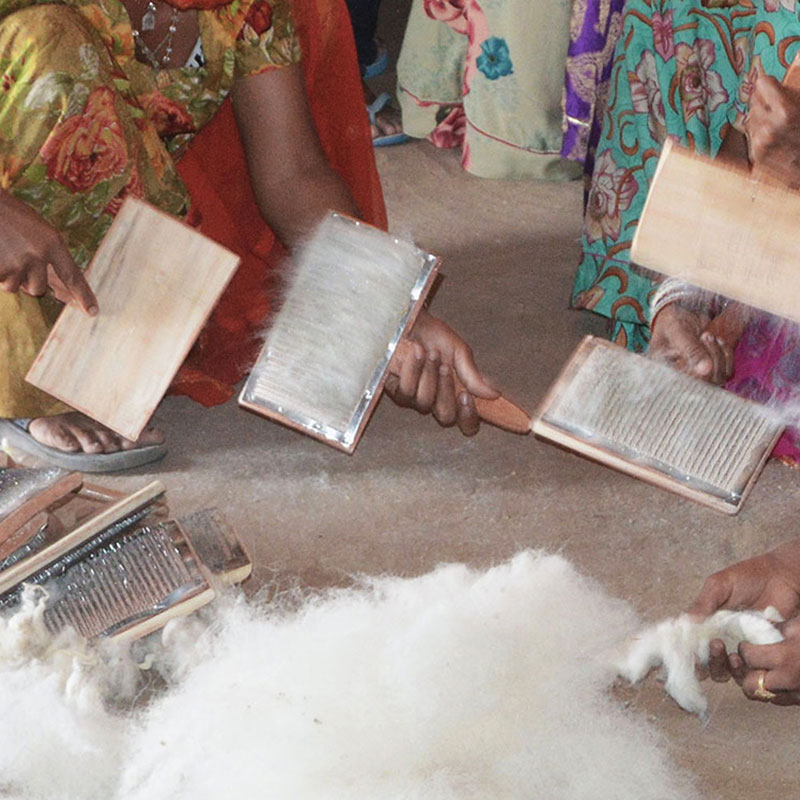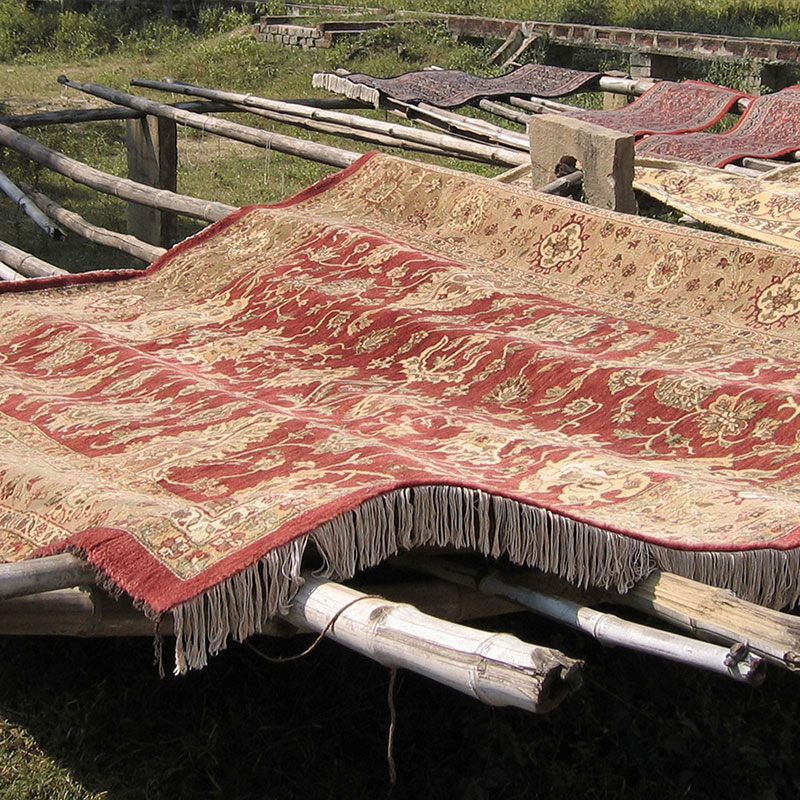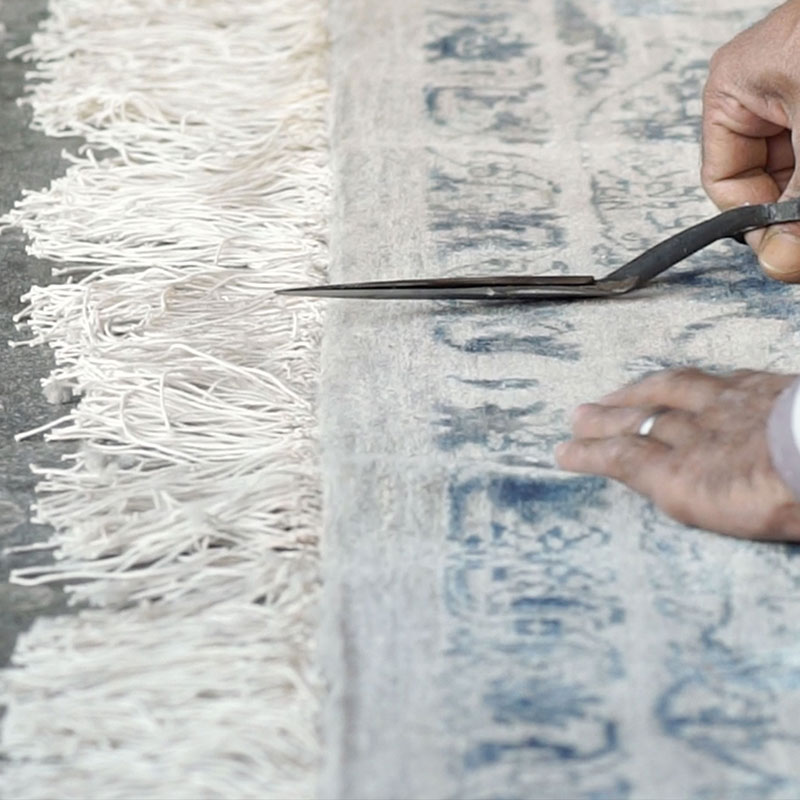Every Rug Tells a Story
Touched by thousands of hands, the ancient art of rug making is a remarkable achievement practiced by many, yet understood by a precious few. More than a floor covering, every hand knotted rug is a true testament to the imagination and uniqueness of the human spirit.
The Process
step-by-step

1. Design
Before weaving begins a design rendering called a "nakshar" is created, usually drawn freehand on graph paper, with each square representing a single knot.

2. Carding
The raw wool is cleaned, detangled and hand-carded into fibers that are prepared for spinning.

3. Spinning
The carded fibers are spun using a spinning wheel to make threads of yarn that are ready to be dyed.

4. Dyeing
The spun bundles of yarn are submerged into a brewing pot of chrome or natural dyes until they obtain the intended shade of color.

5. Weaving
The yarn is hand knotted on a loom by skilled weavers, bringing the design to life. This intricate art can be traced back almost three thousand years and requires a great deal of precision and patience to master.

6. Washing
The newly woven rug is soaked with soap and water and scrapped with wooden paddles to remove any dust, dirt and debris. The vigorous washing process provides luminosity to the rug.

7. Drying
The washed rug is laid out to dry in the sun, a process that can take several days. The sunlight provides brilliance and luster to the woven creation.

8. Stretching
The rug is put on a stretching frame in the sun to counteract the shrinkage that occurs during washing.

9. Shearing
Uneven pile is sheared down to the desired pile height. This process will determine the overall finished look of the rug.

10. Finishing
Finally the rug is finished by hand. Many wool and silk rugs are hand-carved to enhance the design and add texture.
